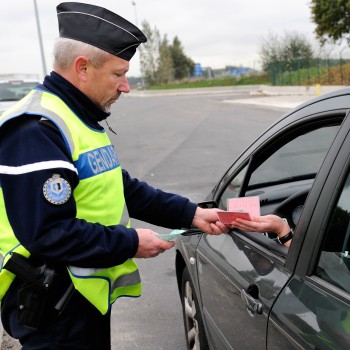At the turn of the century, “speeding” was a relative term.
Evidence? The case of Jacob German. He was your typical New York City taxi driver, screaming around town in his cab, blowing past horse-drawn carriages and pedestrians.
Finally, on May 20th, 1899, he zoomed past a bike cop, who promptly pulled him over and gave him the first speeding citation ever. How did a bike cop manage to keep up, you ask? Jacob was only going 12 miles an hour. Back then, the limit was eight, or four if you were making a turn.
If Jacob’s speed wasn’t outrageous by modern standards, his punishment was. He spent a night in the slammer. It took a few years for the justice system to decide that punishment didn’t exactly fit the crime.
In 1904, a guy named Harry Myers got pulled over in Dayton, Ohio. Instead of jail, he was served the first ever actual paper ticket. No one seems to know the exact amount of Harry’s fine. It was definitely less than the one a Swiss millionaire was slapped with in 2010. He was caught in his Ferrari going 85 through a village in Switzerland, where speeding fines are based on the driver’s wealth. He paid a world-record $298,000.
The Policeman’s Bicycle

Colin Maxwell, lead bartender at Lexington Brass on Lexington Avenue in New York City, where Jacob German got his speeding citation.
Ingredients:
- 1 and 1/2 ounces Aperol
- 1/2 ounce Hendricks Gin
- 2 ounces New Zeland Sauvignon Blanc
- 1/2 ounce lemon juice
- Club soda
- Orange wedge
Instruction:
Stir the Aperol, gin, wine and lemon juice with ice. Top up with club soda and garnish with wedge of orange.


